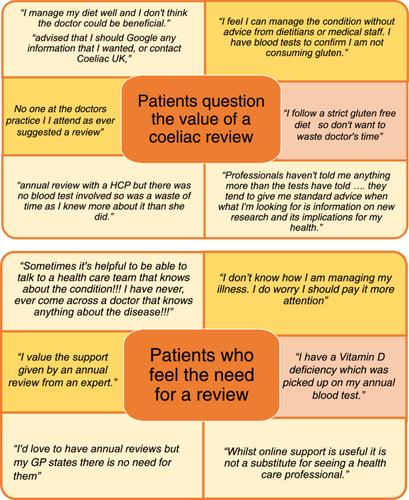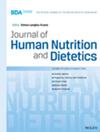Who gets an annual review for coeliac disease? Patients with lower health literacy and lower dietary adherence consider them important
Abstract
Background
A lifelong gluten-free (GF) diet to manage coeliac disease is recognised to be challenging. This paper comprises two studies: study one aimed to report the opinions of adults with coeliac disease on review provision and explore factors influencing dietary adherence. Study two aimed to report dietetic provision for adults with coeliac disease.
Methods
A cross-sectional online survey was completed by 722 adults with coeliac disease, including validated dietary adherence, health literacy and quality-of-life questionnaires. An online and paper survey designed to capture the provision of dietetic services to adults with coeliac disease was completed by 88 dietetic departments within the United Kingdom.
Results
Only 26% of adults with coeliac disease were offered annual reviews. In contrast, 85% considered reviews important, with 62% preferring dietetic provision. Those who considered reviews important had lower health literacy, greater dietary burden, poorer GF dietary adherence and lower GF food knowledge (all p < 0.05) compared with those who did not consider reviews important. GF dietary adherence was associated with health literacy, self-regulatory behaviours, dietary burden and GF food knowledge; 53% agreed with the ‘cost of GF food restricts what I eat’; they had poorer GF dietary adherence compared with those who disagreed (p < 0.001). More than 72% of dietetic coeliac review provision provided content on improving access to GF foods and eating out of the home.
Conclusions
A subpopulation of adults with coeliac disease have a greater need for support and guidance, which supports the viewpoint that limited resources should be targeted towards patients with the most need for support to enable successful disease management.


 求助内容:
求助内容: 应助结果提醒方式:
应助结果提醒方式:


